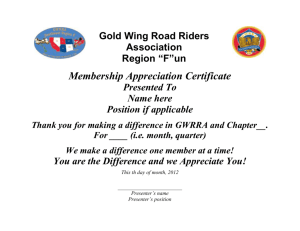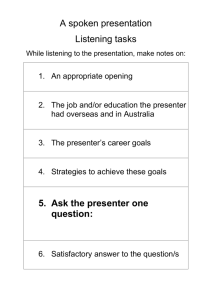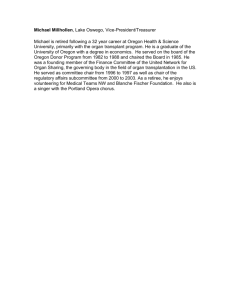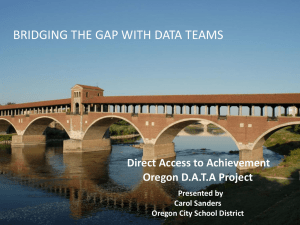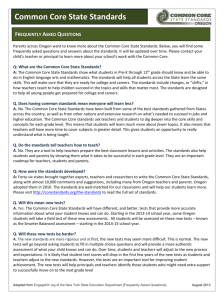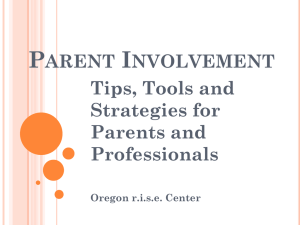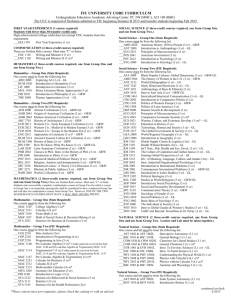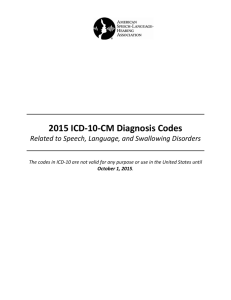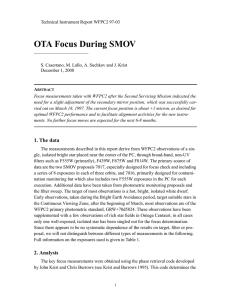AM Sessions: Flight One (approx. 9:30am – 10:30am) GRW 303 GRW
advertisement
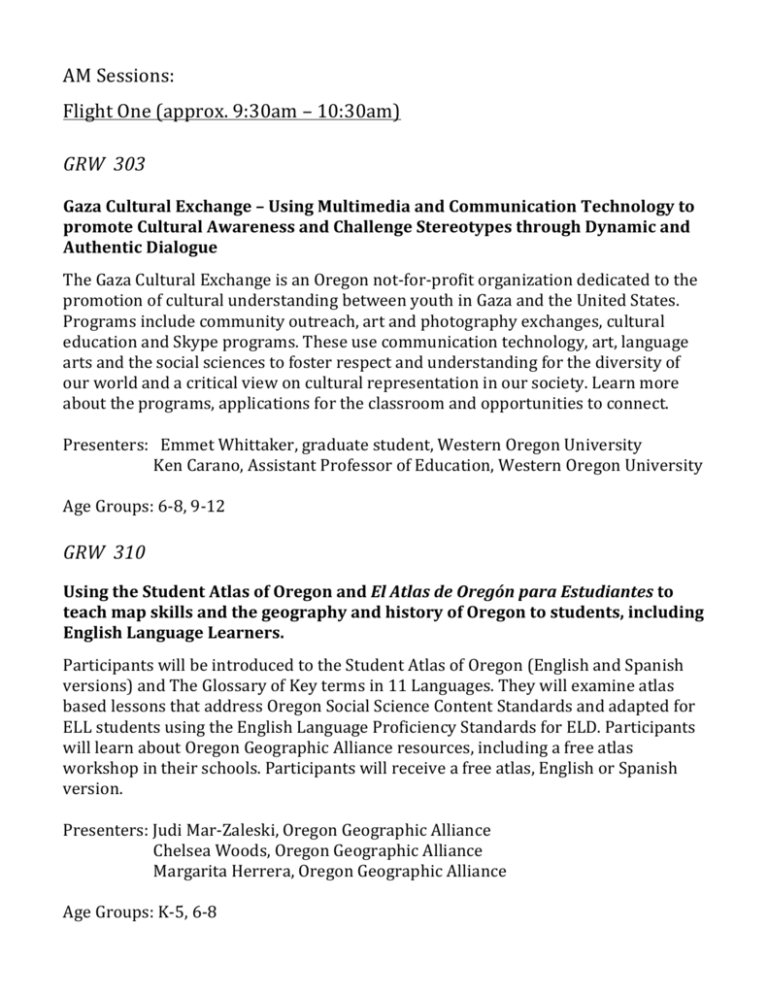
AM Sessions: Flight One (approx. 9:30am – 10:30am) GRW 303 Gaza Cultural Exchange – Using Multimedia and Communication Technology to promote Cultural Awareness and Challenge Stereotypes through Dynamic and Authentic Dialogue The Gaza Cultural Exchange is an Oregon not-­‐for-­‐profit organization dedicated to the promotion of cultural understanding between youth in Gaza and the United States. Programs include community outreach, art and photography exchanges, cultural education and Skype programs. These use communication technology, art, language arts and the social sciences to foster respect and understanding for the diversity of our world and a critical view on cultural representation in our society. Learn more about the programs, applications for the classroom and opportunities to connect. Presenters: Emmet Whittaker, graduate student, Western Oregon University Ken Carano, Assistant Professor of Education, Western Oregon University Age Groups: 6-­‐8, 9-­‐12 GRW 310 Using the Student Atlas of Oregon and El Atlas de Oregón para Estudiantes to teach map skills and the geography and history of Oregon to students, including English Language Learners. Participants will be introduced to the Student Atlas of Oregon (English and Spanish versions) and The Glossary of Key terms in 11 Languages. They will examine atlas based lessons that address Oregon Social Science Content Standards and adapted for ELL students using the English Language Proficiency Standards for ELD. Participants will learn about Oregon Geographic Alliance resources, including a free atlas workshop in their schools. Participants will receive a free atlas, English or Spanish version. Presenters: Judi Mar-­‐Zaleski, Oregon Geographic Alliance Chelsea Woods, Oregon Geographic Alliance Margarita Herrera, Oregon Geographic Alliance Age Groups: K-­‐5, 6-­‐8 GRW 301 “Yo Ghana! The Pitfalls and Possibilities of Connecting West African and American Students” This presentation will use the history of Yo Ghana! as a case study in the possibilities and pitfalls of connecting classrooms in the United States with those in much poorer countries. We shall present a brief overview of the ten sets of relationships that have developed, paying particular attention to: practical considerations; dealing with inequality; learning from each other. The presentation will include videos of Ghanaian classroom instructions and time for discussion. Presenters – David Peterson del Mar, Portland State University Elizabeth Foster-­‐Jones, Central Catholic High School Age Groups, 6-­‐8, 9-­‐12 Flight Two (approx. 10:45-­‐11:45am) GRW 301 Indians, Native Americans, Mexicans and Hispanics -­‐ Which is which, and what's the difference? When Columbus arrived in The New World, he entered a land of dark skinned people he called, 'Indians.' This term was and is still used generically for every dark skinned Native of North, South, and Central America. But nowadays, we have white Senators in the United States claiming American Indian backgrounds, while dark Mexicans who may even speak an Indian language, are considered Hispanic, not Native. How did this ethnic and racial classification confusion start? Presenter – Alvin Benjamin Cota, Valor Middle School, Woodburn Age Groups: General, 9-­‐12 GRW 303 Fearless Fourth Grade Teaching: Authentic Diversity Experiences for the Upper Elementary Classroom This workshop will show teachers how to teach “controversial” topics like race, religion and politics in ways hat are informative, engaging, and authentic for their K-­‐5 students. Bringing the concept of diversity to life for elementary school students means connecting their own experiences with the experiences of others. By creating a classroom community in which children feel safe and respected, the doors are open for students to share, collaborate, discuss, debate, and learn. Presenter – Jo Sigmund, Emerson Public Charter School Age Groups: K-­‐5 GRW 310 Unlocking the Common Core State Standards and Aligning Them to a Social Studies Curriculum and creating Learning Objectives. Newly approved Common Core State Standards are examined at the secondary level, then paired with the Oregon Social Studies Curriculum Standards to better develop concise Learning Objectives that are achievable by all students. Stumbling blocks to student reading and writing improvements will be examined as well. All attendees will receive samples of lesson plans with Learning Objectives, as well as additional materials to use in their lesson preparation. Presenter – Ernie Sowards, OCSS 2008 Teacher of the Year Age Groups: General, 9-­‐12 PM Sessions: Flight #3: (approx. 12:30 – 1:30) GRW 301: 2012 Teacher of the Year Session: Family Geography Night – Your Students Will Love It! Do you want an event that will bring families to your school for educational fun? Are you looking for a way to involve families in learning about geography? Family Geography Night is the answer! This session will feature planning strategies, activity ideas, and resources for holding a successful Family Geography Night. The presenter has held several successful Geography Nights at her school, and is a co-­‐author of the FGN Manual available from the Oregon Geographic Alliance. Presenter – Nancy Hunt, OCSS Elementary Teacher of the Year 2012 Age Groups: K-­‐5 GRW 310 Teaching 20th Century Genocide Historical context, guidelines, and pedagogy for teaching 20th Century Genocide will be explored utilizing 8 Stages of Genocide. Photo analysis will assist teaches unpacking age-­‐appropriate images (middle school & high school) for discerning the roles of victim, perpetrator, collaborator, and bystander. In addition, we will compare/contrast Genocide vs. Atrocities. Educators will depart with classroom techniques for analyzing The Congo, Armenians, Holocaust, Tibet, Cambodia, Bosnia, Rwanda, Darfur/Sudan, and other 20th Century misuse of power. Presenter – Sarah Segal, Hood River Middle School Age Groups – 6-­‐8, 9-­‐12 GRW 303 Der Giftpilz: The Poisonous Mushroom: a Children's Book from Nazi Germany Written by the notorious anti-­‐Semite Julius Streicher and readily endorsed by the Nazi government, Der Giftpilz was used extensively as a reading primer in primary schools throughout Germany in the 1930s. Chapters describe various Jewish people in most vile stories complete with illustrations. Students learned about the Jewish doctor, lawyer, banker, kosher butcher, peddler and various inflammatory descriptions of Jewish religion, physiology and culture. The Jews in the book are drawn in the most ugly manner and emphasize stereotypical features. Presenter – Matt McBeth, Cascade High School Age Groups – 9-­‐12 Flight #4 (approx. 1:30 – 2:30) GRW 301 Giving Children a Voice: Value-­‐based Social Studies in the K-­‐2 Democratic Classroom This workshop will focus on the Culture, Identity, History and Civics strands of the state standards and will examine teaching strategies aimed at engaging students in meaningful dialogue and true value-­‐based learning. We will discuss a variety of simple curricular engagements that allow children to practice basic democratic values such as equity, justice, diversity, and free speech. Participants will come away with ideas for lessons, book and resources lists, and, hopefully, a reinvigorated sense of the importance of value-­‐based Social Studies for young children. Presenter: Kristen Braia, Chief Joseph Elementary School Age Groups: K-­‐5 GRW 303 Cafe Baghdad How does the language you speak impact your identity? What conclusions do others draw based on your dialect? This session will explore these questions through Cafe Baghdad, a true story of Iraqi intellectuals in Baghdad in the 1920s. As they gather to discuss the fate of their country, they struggle to assert their identity with their specific dialects. Participants will receive teaching materials. Presenter: Elly Cohen, Middle East Studies Center at Portland State University Age Groups: 9-­‐12, University GRW 310 A New Means of Talking: Tablet Technology and Social Studies This session will allow Social Studies educators to explore how they can best utilize their tablets within the K-­‐12 classroom. Is the tablet merely a fad or can it be a game-­‐changer when it comes to how we are able to teach Historical Thinking and Primary Source Analysis? What are the implications for “doing history” – whether elementary students get the opportunity to explore their communities or secondary students can chronicle critical national issues? Bring your own tablet for maximum value, but rest assured devices will be available for you to play with. Presenter: Shawn Daley, OCSS President Age Groups: General, but with greater 6-­‐8/9-­‐12 implications

